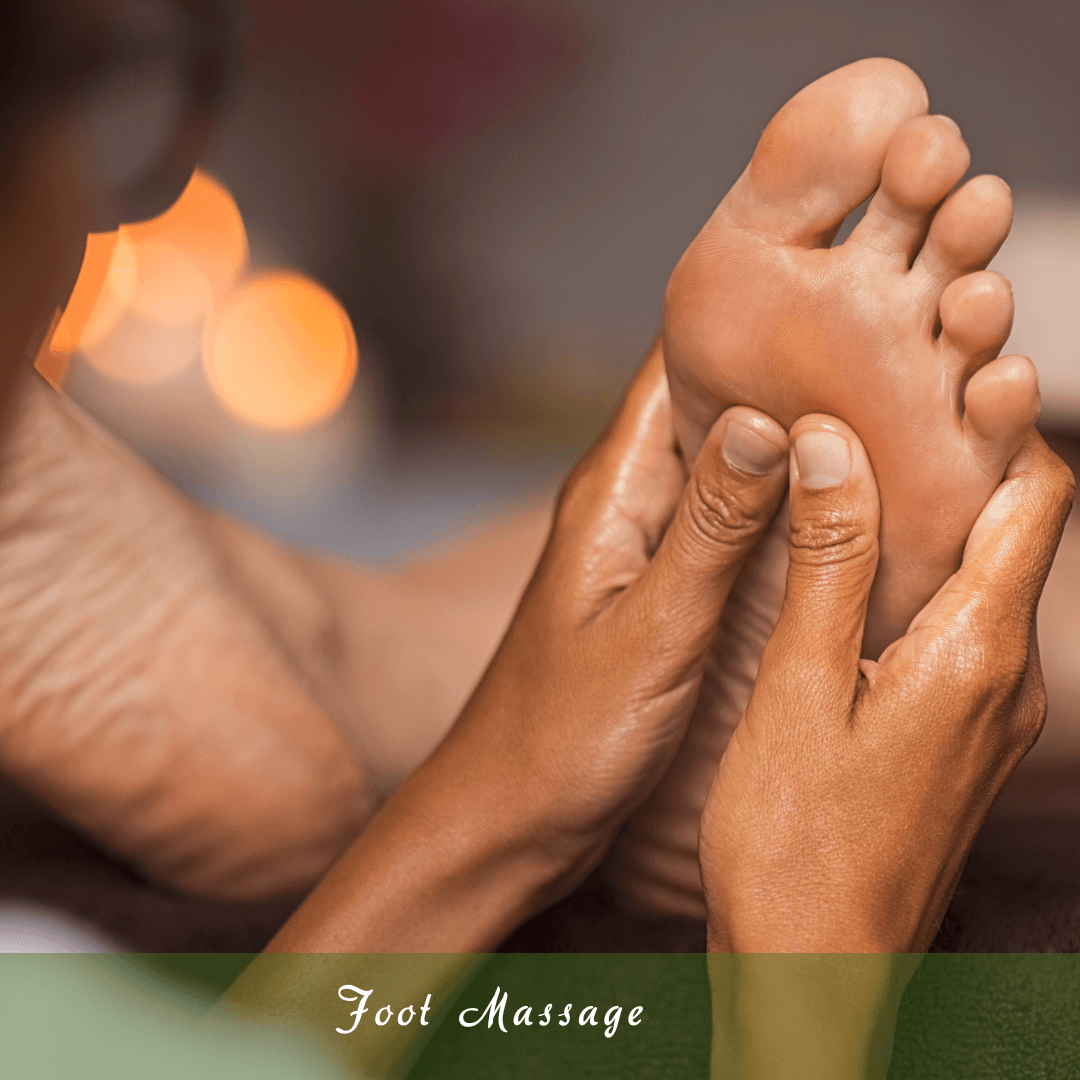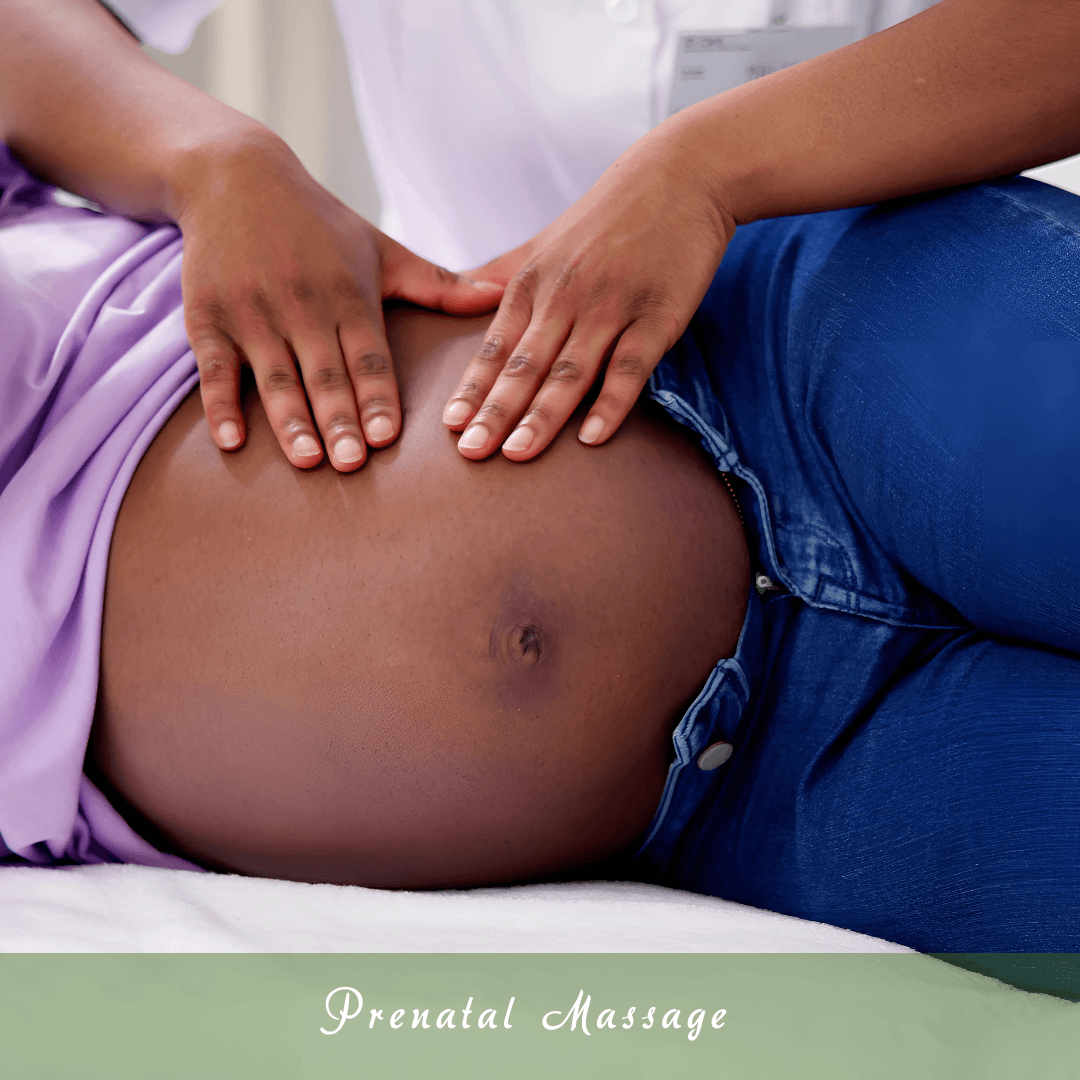Best Stress-Relieving Massages
Best Stress-Relieving Massages For Deep Relaxation And Tension Release
A Stress-Relieving Massage is the perfect way to unwind and release built-up tension from your body.
Designed to promote deep relaxation, this therapeutic massage technique targets key pressure points to ease muscle tightness, improve circulation, and soothe your mind.
Whether dealing with stress from work or daily life, a stress-relieving massage offers a much-needed escape, leaving you feeling rejuvenated and refreshed.

How Massage Relieves Stress
1. Reduces Muscle Tension
Stress causes muscles to tighten, leading to discomfort, pain, and stiffness. Massage helps loosen knots, increase flexibility, and improve circulation, allowing muscles to relax.
The physical release of tension also signals the brain to relax, reducing stress-related discomfort and promoting overall well-being, comfort, and ease of movement.
2. Lowers Cortisol Levels
Cortisol, the body’s primary stress hormone, increases during stress, causing anxiety, fatigue, and restlessness.
Research shows that massage helps the nervous system transition from a fight-or-flight response to a relaxed one by lowering cortisol levels. This improves mood, reduces stress, and enhances overall mental and emotional balance.
3. Increases Serotonin And Dopamine
Serotonin and dopamine are neurotransmitters that promote happiness, calmness, and emotional stability and massage promoter release.
Higher levels of these feel-good chemicals help counteract the effects of stress and anxiety. Increasing these hormones can also improve focus, boost motivation, and create a more positive state of mind.
4. Improves Sleep Quality
Stress often disrupts sleep, leading to insomnia, restlessness, and fatigue. Massage promotes deep relaxation, regulating sleep hormones such as melatonin and serotonin.
By calming the nervous system and relaxing the body, massage helps you fall asleep faster, stay asleep longer, and feel refreshed and energized.
5. Enhances Circulation And Oxygen Flow
Massage increases blood circulation, efficiently ensuring oxygen and essential nutrients reach muscles and tissues. This reduces muscle fatigue, alleviates physical stress, and boosts energy levels.
Improved circulation also aids in detoxification, helping the body eliminate stress-induced toxins and promoting a sense of physical and mental rejuvenation.
6. Encourages Mindfulness And Relaxation
Massage allows the mind to slow down, helping you focus on the present moment. The rhythmic touch and soothing movements shift attention away from daily worries, creating a meditative state.
This mindful relaxation reduces anxiety, enhances self-awareness, and fosters a deeper connection between the body and mind.
7. Supports The Immune System
Long-term stress impairs immunity, leaving the body more susceptible to disease. Massage helps regulate immune function by lowering stress hormones and increasing white blood cell activity.
This enhances the body’s ability to fight infections, recover from stress-related fatigue, and maintain overall health and resilience against sickness and disease.
Types Of Stress-Relieving Massages
Several different types of massage can effectively relieve stress. Every kind is created with particular body parts and approaches in mind, enabling a customized approach that meets each person's requirements and preferences.

1. Swedish Massage
Swedish massage is one of the most popular and widely utilized forms of massage therapy. Known for its deeply relaxing and stress-relieving effects, it helps reduce muscle tension, enhance blood circulation, and promote overall relaxation.
This technique involves long, smooth strokes, kneading, and rhythmic tapping, which increase oxygen flow in the blood and aid in removing toxins from the body.
Swedish massage is commonly offered in spas, wellness centers, and resorts, making it a go-to choice for those seeking effective stress-relieving massages.
It is ideal for beginners, individuals experiencing mild stress, or anyone looking to unwind and rejuvenate.
2. Deep Tissue Massage
Deep tissue massage is very effective at releasing long-term stress and tension because it targets the deepest levels of muscle and connective tissues.
This massage technique uses firm pressure, slow strokes, and deep finger pressure to target specific muscle groups. It can help alleviate muscle stiffness, reduce pain, and improve flexibility.
It’s particularly beneficial for individuals dealing with long-term stress, athletes, or those experiencing persistent muscle tightness.
Deep tissue massage is commonly performed in medical spas, sports recovery centers, or chiropractic clinics. It’s ideal for anyone seeking relief from deep muscle pain or injury rehabilitation.

3. Aromatherapy Massage
Aromatherapy massage combines Swedish massage's calming effects with essential oils' therapeutic benefits. Eucalyptus, lavender, and chamomile are exomas that promote relaxation and stress reduction.
The therapist applies gentle to medium-pressure aromatic oils, stimulating the senses and promoting emotional well-being. This massage relaxes the body and helps alleviate anxiety and stress-induced headaches.
Aromatherapy massage is commonly found in holistic wellness centers, luxury spas, and aromatherapy-focused clinics. It’s ideal for individuals who enjoy aromatherapy and need emotional relaxation or stress-relieving massages.
4. Hot Stone Massage
A hot stone massage is a soothing treatment that applies heated, smooth stones to particular body locations.
The stones' warmth increases the massage's overall efficacy by improving circulation and releasing tense muscles.
While the stones provide heat therapy, the therapist uses Swedish massage techniques to work on various areas of the body.
This massage is commonly offered in high-end spas, luxury resorts, and wellness retreats. Hot stone massage is ideal for individuals dealing with high stress or poor circulation or anyone who enjoys heat therapy for relaxation and muscle relief.

5. Shiatsu Massage
Shiatsu is a traditional Japanese massage technique that uses fingers to pressure specific acupressure points on the body.
This method promotes balance, relieves muscle tension, and encourages energy flow while enhancing mental clarity.
The therapist applies rhythmic pressure using their fingers, palms, and elbows, often without oil, allowing the body’s energy to be realigned. Shiatsu is ideal for seeking alternative therapies to relieve stress, fatigue, or energy blockages.
This massage is best experienced in traditional Japanese spas, holistic health centers, or acupuncture clinics, offering a unique approach to restoring physical and mental well-being.
6. Thai Massage
Thai massage is an invigorating therapy that combines stretching, deep compression, and acupressure to alleviate stress and tension. It enhances flexibility, boosts energy levels, and leaves you feeling rejuvenated.
While Thai massages are traditionally administered on a table, Thai massages are performed on a mat. The practitioner manipulates the body into various stretches, using multiple dynamic massage techniques to improve circulation and mobility.
Thai massage is ideal for active individuals, yoga practitioners, or those seeking a more energetic and physical approach to relaxation. It’s best experienced in specialized Thai spas, wellness retreats, or holistic centers.

7. Foot Massage (Reflexology)
Reflexology is a healing method that targets particular pressure points on the feet representing various body systems and organs.
Reflexology involves applying pressure to these points, which promotes relaxation, improves circulation, and helps restore balance to the body.
The therapist uses thumb and finger techniques to stimulate these reflex areas, encouraging the body’s natural healing processes.
Reflexology is commonly offered at reflexology centers, foot massage parlours, and holistic wellness clinics.
This massage is ideal for individuals suffering from stress-related fatigue and foot pain or those seeking a non-invasive therapy for relaxation and overall well-being.
8. Lymphatic Drainage Massage
Lymphatic drainage massage stimulates the lymphatic system and supports the body's natural detoxifying processes. This technique helps reduce swelling, improve immune function, and alleviate stress-induced fatigue.
The therapist uses light, rhythmic strokes to promote the flow of lymph fluid, which enhances circulation and helps remove toxins from the body. Lymphatic drainage massage is commonly offered in medical spas, wellness clinics, and post-surgery recovery centers.
It benefits people who are recuperating from a disease, have fluid retention, or are looking for a mild detoxifying massage to support general health and well-being.

9. Prenatal Massage
Prenatal massage is a specialized therapy designed for pregnant women to help alleviate stress, reduce muscle tension, and improve circulation.
This massage can also ease pregnancy-related discomforts such as lower back pain, leg cramps, and swelling.
The therapist uses gentle strokes and targeted pressure, avoiding sensitive areas to ensure the mother and baby's safety.
Prenatal massage is typically offered in prenatal wellness centers, maternity spas, and hospitals with certified therapists trained in prenatal techniques.
It is ideal for expectant mothers looking for a safe and soothing way to relieve stress and tension during pregnancy.
10. Cupping Therapy Massage
Cupping therapy massage involves using suction cups to create negative pressure on the skin, which helps promote blood circulation, reduce muscle tension, and alleviate stress.
The therapist places silicone or glass cups on the skin, leaving them in place or gliding over muscle areas to release tension. This therapy can also help detoxify the body, improve flexibility, and enhance relaxation.
Cupping therapy is often found in acupuncture clinics, sports recovery centers, and holistic healing spas.
It is ideal for individuals with chronic stress, muscle stiffness or those seeking alternative healing methods to improve well-being.

11. Chair Massage
Chair massage is a convenient and effective therapy targeting the back, shoulders, neck, and arms. It is designed to relieve workplace stress, reduce tension, and boost energy levels in a brief session.
The therapist uses kneading and compression techniques while the client remains seated in a specially designed chair, which makes it easy for individuals to fit it into their busy schedules.
This type of massage is commonly offered in corporate settings, airports, shopping malls, and wellness events.
Chair massage is ideal for busy professionals, travellers, and anyone seeking a quick, effective, stress-relieving experience.
12. CBD Massage
CBD massage uses cannabidiol (CBD)-infused oils to enhance relaxation, reduce inflammation, and relieve stress.
CBD's anti-inflammatory and calming properties are particularly effective for muscle recovery and mental relaxation.
The therapist applies CBD oil with gentle to deep pressure, focusing on areas of tension to help alleviate discomfort.
CBD massage is commonly offered in wellness spas, alternative medicine clinics, and high-end holistic therapy centers.
Its calming effect on the body and mind makes it perfect for people who want a natural and therapeutic way to manage pain, reduce stress, and relax.

13. Trigger Point Massage
A trigger point massage aims to release “trigger points,” or muscular knots that can cause pain, tension, and stress throughout the body. These knots often develop from poor posture, repetitive movements, or chronic stress.
The therapist applies direct pressure and slow, deep strokes to specific areas, helping to relieve discomfort and restore muscle function.
This method works very well for those who suffer from persistent muscle tightness, particularly in the neck.
Trigger point massage is commonly found in sports therapy clinics, chiropractic offices, and rehabilitation centers, making it an excellent choice for those suffering from localized pain and muscle stiffness.
14. Craniosacral Therapy
The soft, manual technique known as craniosacral treatment (CST) aims to release tension in the craniosacral system, which comprises the fluids.
The therapist uses light touch to assess and correct imbalances, promoting relaxation and reducing stress.
CST is particularly beneficial for individuals with chronic stress, migraines, PTSD, or nervous system disorders. It enhances mental clarity, improves sleep, and supports emotional well-being.
This therapy is commonly offered in holistic healing centers, osteopathic clinics, and wellness retreats. It is ideal for those seeking a non-invasive, deeply relaxing way to relieve stress and tension.

15. Sports Massage
Sports massage is intended to help athletes and active people perform better, avoid injuries, and recuperate more quickly.
It combines deep tissue techniques, stretching, and joint mobilization to relieve muscle tension, improve flexibility, and boost circulation.
This massage mainly benefits those who engage in intense physical activities, such as runners, weightlifters, and sports professionals. By targeting overworked muscles, sports massage reduces soreness, enhances recovery, and improves mobility.
It is commonly offered in sports rehabilitation clinics, fitness centers, and physical therapy offices, making it a go-to choice for anyone leading an active lifestyle and seeking muscle relief.
16. Balinese Massage
Balinese massage is a luxurious full-body therapy combining deep tissue techniques, acupressure, aromatherapy, and reflexology to relieve deep relaxation and stress.
Originating from Bali, Indonesia, this massage uses a mix of rolling, kneading, and rhythmic pressure to enhance circulation, improve energy flow, and ease muscle tension. Essential oils infused with floral or herbal extracts are often used to stimulate the senses and promote relaxation.
Balinese massage is standard in luxury spas, wellness retreats, and Southeast Asian resorts. It is ideal for individuals seeking a unique, holistic approach to relaxation, healing, and revitalizing the body and mind.

17. Hydrotherapy Massage
Hydrotherapy massage combines water-based treatments, such as warm water jets, underwater massage, and floating therapy, to promote deep relaxation and relieve muscle tension.
The water’s buoyancy reduces joint pressure, making it an excellent choice for individuals with arthritis, muscle pain, or mobility issues.
The water's warmth promotes better blood circulation, while the water's mild pressure eases tension and massages aching muscles.
Hydrotherapy massage is commonly available in wellness resorts, hydrotherapy pools, and rehabilitation centers. It is particularly beneficial for recovering from injuries, managing chronic pain, or seeking a gentle yet effective method for stress-relieving massages.
18. Indian Head Massage
Indian head massage, a practice rooted in Ayurveda, focuses on massaging the scalp, neck, and shoulders to relieve stress, tension, and mental fatigue.
This technique uses circular strokes, gentle tapping, and kneading movements to improve blood circulation, relax tight muscles, and reduce headaches.
The massage stimulates nerve endings, promoting deep relaxation and mental clarity. It helps people who suffer from migraines, sleeplessness, or impaired focus brought on by stress.
Indian head massage is commonly offered in Ayurvedic spas, wellness centers, and holistic healing clinics. It is an excellent choice for those seeking an effective and natural method to relieve stress and boost overall well-being.
FAQ
1. What Is A Relaxation Massage?
Answer: A relaxation massage is a gentle, soothing therapy designed to reduce stress, improve circulation, and promote overall well-being. It uses light to medium pressure with flowing strokes to relax the body and mind.
2. Can Massage Relieve Stress?
Answer: Yes! Massage helps reduce stress by lowering cortisol levels, relaxing tense muscles, and boosting serotonin and dopamine—chemicals that enhance mood and relaxation. It also improves sleep and reduces anxiety, making you feel more balanced.
3. Is This Different From A Regular Massage?
Answer: Yes, stress-relieving massages focus more on relaxation and mental well-being. They use soothing techniques rather than intense muscle manipulation, such as deep tissue or sports massages.
4. How Long Does A Session Typically Last?
Answer: Sessions typically last 60 to 90 minutes, depending on your needs and interests. Shorter 30-minute sessions are also available for quick tension relief.
5. Do I Need To Do Anything To Prepare For The Massage?
Answer: For the best experience, arrive best experience, arrive well-hydrated, wear comfortable clothing, and avoid heavy meals at least once
6. Should I Eat Before My Session?
Answer: Eating a light meal at least an hour before your massage is best to avoid discomfort while lying down.
7. What Should I Wear To My Massage Appointment?
Answer: Wear loose, comfortable clothing. You’ll have the privacy to undress to your comfort level before the session begins.
Conclusion
In conclusion, Stress-Relieving Massages are a luxury and a necessity for overall well-being. Relieving physical tension and mental stress helps restore balance in the body and mind.
Regular sessions can improve your health, boost energy levels, and promote relaxation, making it an essential part of any self-care routine. Reclaim your calm and experience the rejuvenating benefits today.
I trust you enjoyed this article on Stress-Relieving Massages For Deep Relaxation And Tension Release. Please stay tuned for more blog posts soon. Take care!
JeannetteZ
>>>Please click here to read my all-inclusive article about Lessons That Will Teach You All About Stress<<<
>>>Are you interested in Natural Healing And Stress Relief through Herbs? Please click here for my #1 Recommendation<<<
Your Opinion Is Important To Me
Do you have thoughts, ideas, or questions? I would love to hear from you. Please leave me your questions, experiences, and remarks about this article, Stress-Relieving Massages For Deep Relaxation And Tension Release, in the comments section below. You can also email me at Jeannette@Close-To-Nature.org.
Disclosure
This post may contain affiliate links. As an Amazon Associate and other affiliate programs, I earn from qualifying purchases at no extra cost to you. Please read my full affiliate disclosure.
You might also enjoy these blog posts:
How To Grow Pansies And Violas In A Container
The Most Stressful Jobs In The World
What Is The Difference Between Stress And Depression
The Impact Of Stress On Your Body







